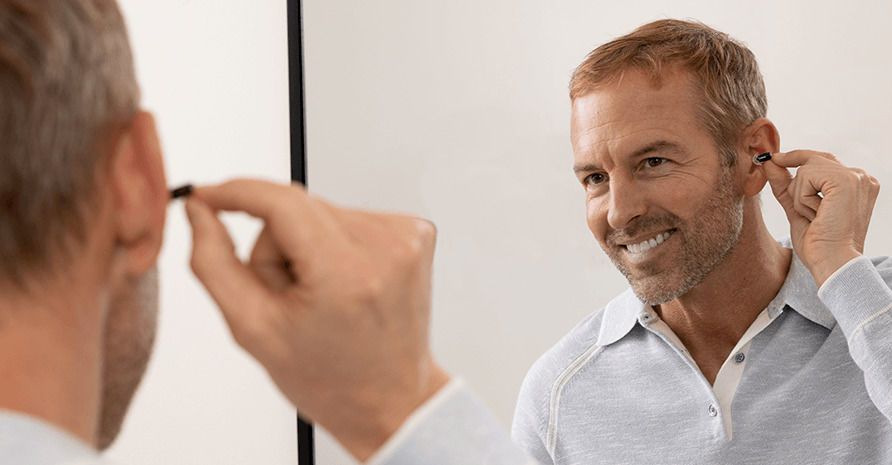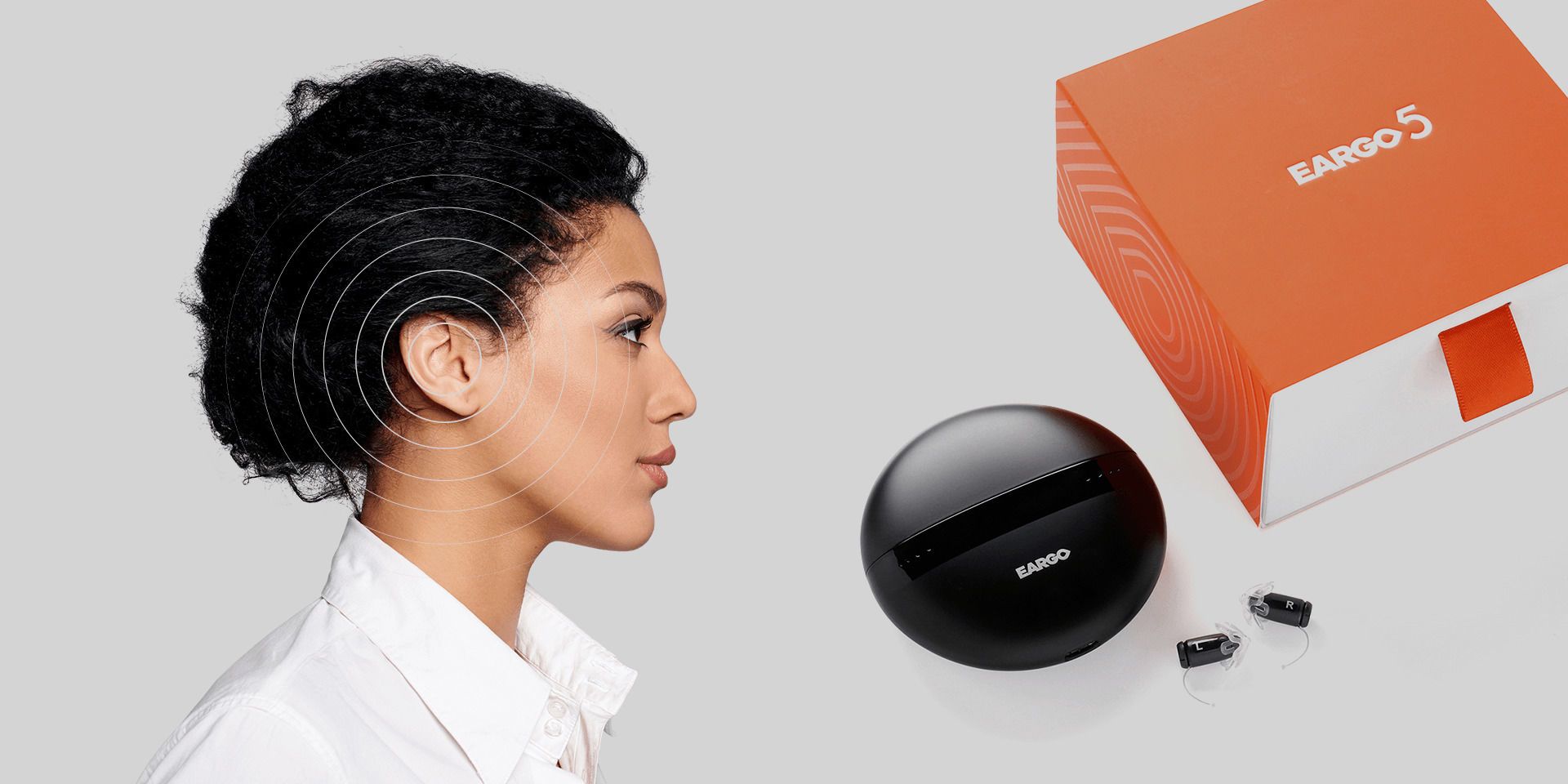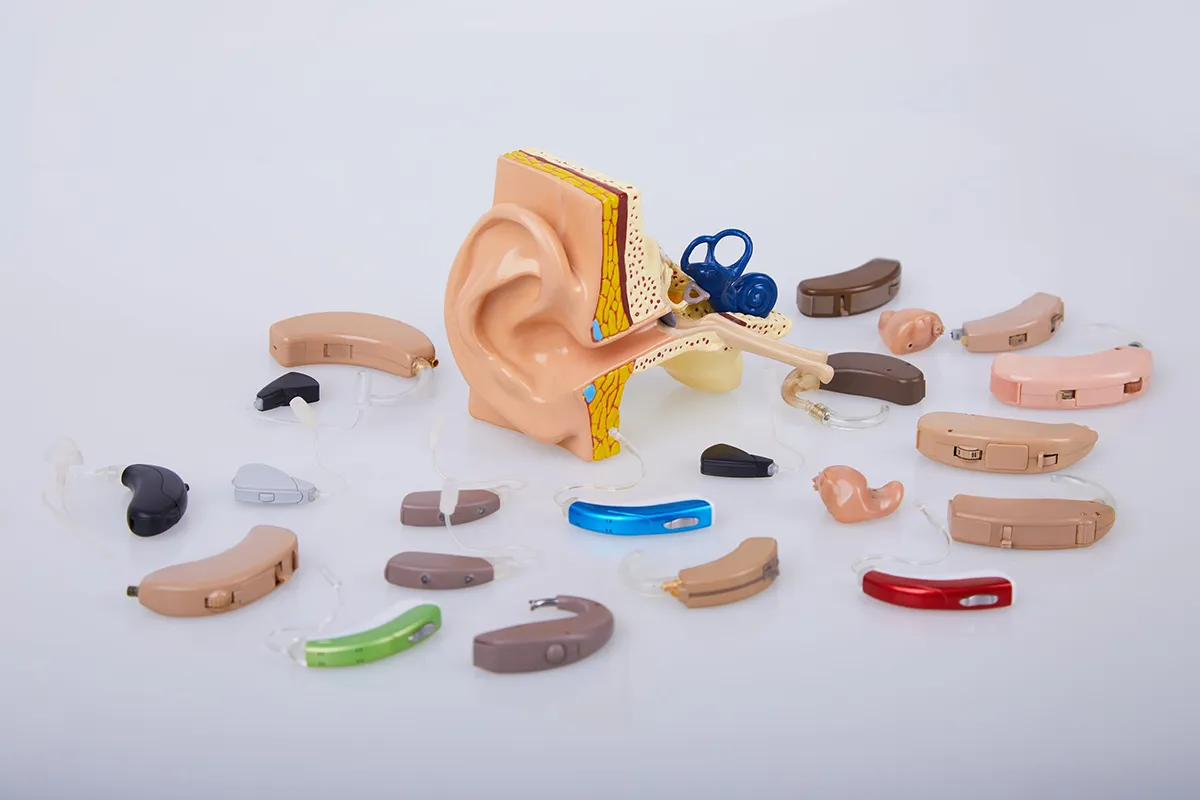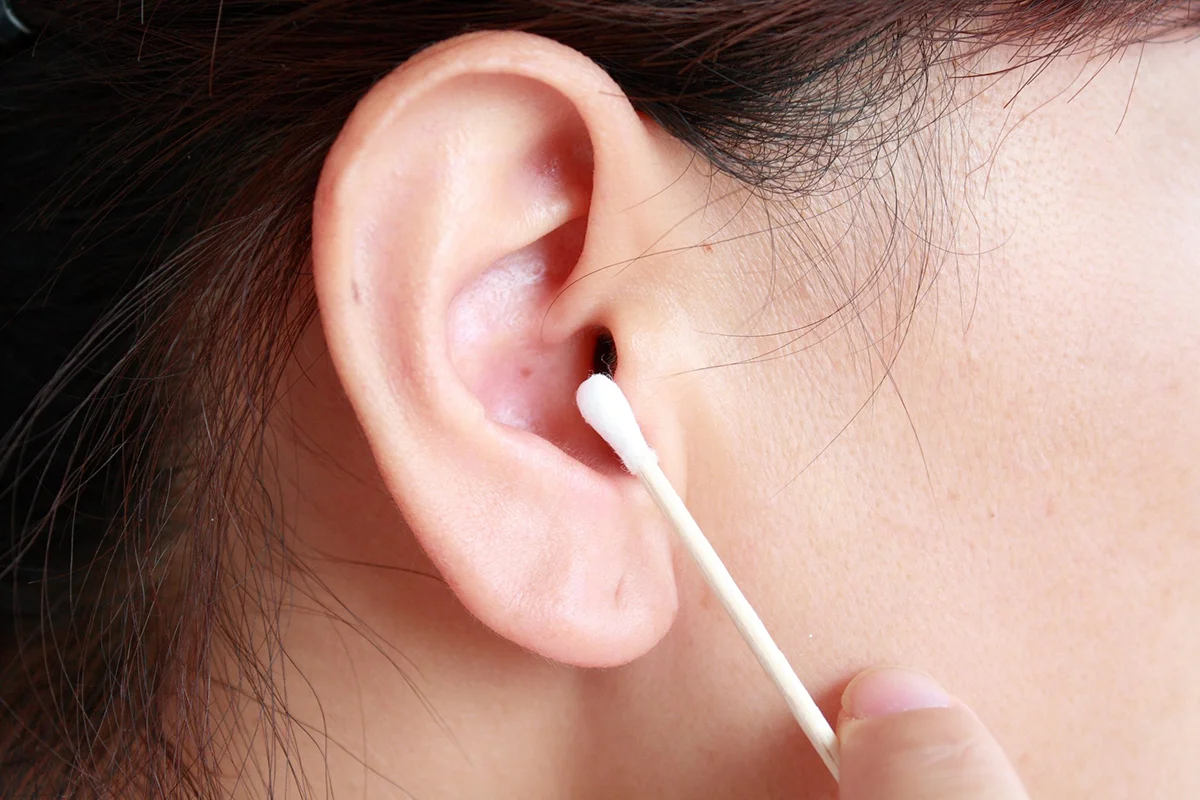The U.S. Food and Drug Administration (FDA) established over-the-counter (OTC) hearing aids as their own category in the fourth quarter of 2022, causing many people to wonder: Who would actually benefit from OTC hearing aids? Here, a representative from the Academy of Doctors of Audiology (ADA), a nationwide organization focused on promoting quality audiologic care, explains why OTC hearing aids are for people with mild to moderate hearing loss, as well as what to look for in an OTC hearing aid.
How Mild Hearing Loss Compares to Other Degrees of Hearing Loss
A person’s degree of hearing loss depends on how loud sounds must be (in terms of decibels, or “dB”) before the person can hear them. Hearing loss up to 20 decibels below the hearing threshold can still be considered normal hearing. The chart below shows the decibel thresholds for different levels of hearing loss.
Degrees of Hearing Loss Chart
| Mild Hearing Loss | 20-40 decibels | Able to hear some speech sounds, but quiet sounds are difficult to hear. |
Moderate Hearing Loss | 41-60 decibels | Trouble hearing any speech when a person is speaking at a normal level. |
Severe Hearing Loss | 61-80 decibels | Able to hear only some loud noises and cannot hear people speaking at a normal volume. |
Profound Hearing Loss | 81+ decibels | Unable to hear or understand speech and might hear sounds only if they are very loud. |
Sources 1 and 2
Dr. Victor Bray, M.Sc., Ph.D., FNAP, and a past president of the ADA, explains, “There’s some labeling that gives you some ideas of what is mild to moderate versus what is severe. Here’s a quick way I would describe it. If you can sit in a room and talk with somebody and you can hear them talking, but you have trouble understanding what they're saying, it’s probably a mild to moderate loss. But if you’re sitting in that room and you don’t hear them talking unless they come up to get close to you and speak louder, you probably have a severe loss. Over-the-counter hearing aids are not for people with severe loss. And if you have that kind of a hearing loss, you need to go first see an audiologist.”
People with hearing loss or who suspect they have hearing loss can have their hearing checked to receive a diagnosis. Then it's possible to seek treatment for certain symptoms or related issues, such as poor balance, dizziness, communication disorders, ear canal blockages, middle ear infections, or inner ear problems.
What Are OTC Hearing Aids?
OTC hearing aids are hearing aids consumers can buy directly from a retailer or manufacturer—no prescription or visit to a health professional is necessary to buy OTC hearing aids. The FDA put into place guidelines for regulating OTC hearing aids as medical devices in October 2022.
Note the FDA does recommend consulting a medical professional for more severe cases of hearing loss or for any “red flag” conditions, such as pain or discomfort in the ear, heavy earwax buildup, or sudden changes in hearing. Check the hearing aid product labeling or the FDA website for more information on when to seek medical advice.
Just like prescription hearing aids, non-prescription OTC hearing aids are capable of amplifying sounds for individuals within a certain degree of hearing loss. Specifically, OTC hearing aids are for people who have mild to moderate hearing loss; they are not for those with profound hearing loss. In other words, OTC hearing aids might be an option for individuals who hear speech or sounds as being muffled, have trouble differentiating many sounds from background noise, or find it extra difficult to hear soft sounds or quiet sounds.
Unlike with prescription hearing aids, wearers of OTC hearing aids may be able to fit the devices themselves or personalize their programming or make other adjustments. This is in contrast to hearing aids that are prescribed, which require an audiologist or other hearing health professional to conduct the fitting and oversee adjustments.
 People who are candidates for OTC hearing have mild hearing loss to moderate hearing loss.
People who are candidates for OTC hearing have mild hearing loss to moderate hearing loss.
Are OTC Hearing Aids Right for Everyone?
OTC hearing aids are not right for everyone, with the type of hearing loss, the degree of hearing loss, and the person’s age being chief among the determining factors.
“When someone is considering an over-the-counter hearing aid,” Bray says, “there are several things that you should take into consideration. The first, I think, is very important—is determining whether or not you have a condition that is treated either medically or surgically. There are certain types of hearing loss which are not appropriate for use with a hearing aid until maybe there’s some medical intervention. There’s labeling on the OTC hearing aid box that says if you have any one of these conditions, seek medical attention first. So that’s, first, the most important thing.”
Bray continues, “The second is, are you a candidate for over-the-counter hearing aids? They are for people with perceived mild to moderate loss. They’re not for people with more hearing loss, which you call a ‘severe’ category.”
Lastly, Bray urges people to consider the age of the person who’s going to use the OTC hearing aid, noting they are for adults only. According to the FDA, anyone younger than 18 requires a prescription for hearing aids and should work with a licensed health care professional for assessment and treatment.
Hearing aids, including OTC hearing aids, cannot restore hearing; they can only amplify sounds. This means they are not for people who are deaf or approaching deafness. Additionally, people with cochlear implants may or may not be advised by their doctors to also wear a hearing aid.
OTC Hearing Aids as Self-Fitting Hearing Aids
Some OTC hearing aids are considered to be “self-fitting hearing aids” because the consumer can purchase the product directly from the brand or retailer and fit the hearing aids themselves at home. Bray describes the positive aspects of this type of experience and what to look for in an over-the-counter hearing aid.
“What you would hope that you’re getting,” he says, “is an over-the-counter hearing aid that has some kind of internal architecture that communicates with you. So you can respond to the system and go through some steps like testing your hearing automatically, maybe listening to some different sound settings to go through a self-fitting process. And that’s kind of the crucial part of getting the best out of an over-the-counter hearing aid. It’s not required, but it’s something that you’d want to look for.”
Learn about more hearing health topics in this series by Eargo in collaboration with the ADA.
The information contained in multimedia content, interviews, or quotations from third parties (the “Content”) posted represents the views and opinions of the interviewed participants and does not necessarily represent the views or opinions of Eargo, Inc. (“Eargo”).
The production of the Content was paid for by Eargo, although the interviewed participants did not receive any money from Eargo for their participation in the creation of the Content. The Content has been made available for informational and educational purposes only and does not purport to be complete; nor is it intended to be a substitute for professional medical advice. Eargo does not make any representations or warranties with respect to the accuracy, applicability, fitness, or completeness of the Content.





